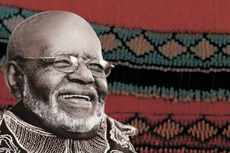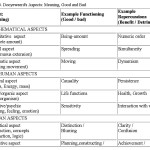Hunter S. Thompson: His Last Shotgun Art. No More Fear And Loathing In Woody Creek.
Hunter S. Thompson, the counter culture ‘gonzo’ journalist, died on February 20, 2005 by a weapon of his choice. The inventor of Shotgun Art and Shotgun Golf fatally shot himself at his Owl Creek farm in Woody Creek, Colorado. He was 67.
‘Prince of Gonzo’ he called himself, ‘Doctor Gonzo’, ‘Doctor of Journalism’, ‘Outlaw Journalist’, ‘Doc’, ‘The Duke’: Hunter Stockton Thompson (Louisville, Kentucky, 1939).
Rock star of the written word.
And as with rock stars meeting one is never an easy task. But we managed, once, after endless waiting and drinking our way into the local bar, The Woody Creek tavern. The sun was already sinking behind the Rocky Mountains, bathing the area around the Tavern in a chill and cheerless light, when finally the great Doctor made his appearance. Five in the morning would have been a more approriate time.
Word had it that Thompson was burned out. That, battle weary, he’d given up on the Gonzo cause. Gonzo comes from the French-Canadian word gonzeaux which means something along the lines of shining path. Hunter Thompson was that path; the only fully fledged grand master of Gonzo. His Gonzo style was often confused with New Journalism, made famous by Tom Wolfe and Gay Talese. But that is quite incorrect. Wolfe and the like attack the truth with the techniques of the novelist. They lose themselves in the minds of their subjects. Thompson lost himself in his own mind, and traced only his own madcap, hallucinatory journey through the many events in his stories. “It’s essentially a ‘what if’,” as P. J. O’Rourke, another Rolling Stone celebrity, quoted Thompson. Read more
Philip Roth ~ The Plot Against America
About The Plot Against America
Set in Newark, New Jersey, in the early 1940s, The Plot Against America tells the story of what it was like for the Roth family and Jews across the country when the isolationist aviation hero Charles Lindbergh was elected president of the United States. Roth’s richly imagined novel begins in 1940, with the landslide election of Lindbergh, who blamed the Jews for pushing America toward war with Nazi Germany. Lindbergh’s admiration of Hitler and his openly anti-Semitic speeches cause increasing turmoil in the Roth household, and in nine-year-old Philip, as political events at home and abroad overtake their daily lives. Alvin, the orphaned nephew the family has taken in, runs away to Canada to fight the Nazis. Sandy, Philip’s older brother, ascribes his parents’ fears to paranoia and embraces Lindbergh’s Just Folks program, which sends him and other Jewish children to live in the “heartland” for a summer. Philip’s mother, Bess, wants the family to flee to Canada before it is too late to escape. But his fiercely idealistic father, Herman, refuses to abandon the country where he was born and raised as an American. Overwhelmed by the tensions around him, Philip tries to run away. “I wanted nothing to do with history,” he says. “I wanted to be a boy on the smallest scale possible. I wanted to be an orphan.” But history will not let go, and as America is whipped into a deadly frenzy by demagogues, the Roths and Jews everywhere begin to expect the worst. In The Plot Against America Philip Roth writes with a historical sweep and lyrical intimacy that have rarely been so skillfully combined. As the novel explores the convulsive collision of history and family, readers take a chilling look at devastating events that could have occurred in America–and consider the many possible histories existing beneath the one that actually happened.
About Philip Roth
In 1997 Philip Roth won the Pulitzer Prize for American Pastoral. In 1998 he received the National Medal of Arts at the White House, and in 2002 received the highest award of the American Academy of Arts and Letters, the Gold Medal in Fiction, previously awarded to John Dos Passos, William Faulkner, and Saul Bellow, among others. He has twice won the National Book Award, the PEN/Faulkner Award, and the National Book Critics Circle Award. In 2005 Philip Roth has become the third living American writer to have his work published in a comprehensive, definitive edition by the Library of America.
Source: http://www.houghtonmifflinbooks.com/
The Plot Against America – PDF-format: https://m.reddit.com/theplotagainstamericabyphiliproth/
Decolonising ‘Decolonisation’ With Mphahlele
Es’kia Mphahlele was a writer, activist, organiser and teacher committed to the view that ‘Afrikan humanness’ is the real key to our freedom.
This week marks the 10th anniversary of Es’kia Mphahlele’s death.
Mphahlele (1919-2008) was a writer of fiction, a journalist, a cultural activist, an organiser and, above all, a teacher. The main aim of his fiction and non-fiction work was dealing with what he characterised as the “first exile” – from home culture and ways of understanding the world – from which victims of colonisation suffered. Mphahlele argued that colonised people should begin by overcoming “first exile” if they are to develop decolonising theories and practices. In an era in which the decolonisation of politics and knowledge has captured the imagination of many people, we would do well to recall Mphahlele’s work.
The focus on “first exile” is important because the ultimate aim of colonisation is to separate colonised people from their sources of economic autonomy, ways of understanding the world, and, ultimately, from themselves. The primary “spiritual striving” of victims of colonisation, not just colonialism, is a striving against what the great African-American intellectual WEB du Bois called double consciousness. Similar ideas were developed closer to home. Writing in the 1940s, HIE Dhlomo explained that successfully colonised individuals are ‘neither-nor’ characters who “are neither wholly African nor fully Europeanised”. Dhlomo showed that the double consciousness of these characters was evident in their use of “European measuring rods for success, culture, goodness, greatness”.
In a settler colonial context, the work of colonisation would be achieved when leaders of the colonised people calibrate their demands to Western-style multiparty democracy, civil rights and, therefore, the integration of the elite layer of the colonised people into the historically white world. In such a context, the world and privileges of the settler minority are legitimised and guaranteed, while ‘uncivilised’ people, the majority of the population, continue to exist on the underside of the new society.
When the ‘decolonial’ is fundamentally shaped by the colonial
But not all projects of self-determination take the lived experiences and ideas of this majority seriously. Some are attached to colonialist ideas or obsessed with whiteness, leading to ‘radical’ projects that recenter what they aim to challenge.
In the first case, seemingly decolonial projects repeat colonialist ideas about the inherent differences between black and white; the uniqueness of ‘black culture’ and its supposedly essential traits; and the need to retrieve ‘native’ discourses; forgetting that ‘the native’ comes into being only when the settler arrives and that ‘native’ discourse is constituted by what Congolese philosopher VY Mudimbe calls the “colonial library” – colonial experts of various kinds.
In the second case, the black radical’s ‘colonial mentality’ manifests in projects whose main aim is to shame historical colonisers by constantly repeating anti-black discourses that the black man is not human and cannot coexist with humanity. This trend can be seen in certain strands of Afro-pessimism.
The important point here is that decolonisation often needs to be decolonised itself. In South Africa, no other thinker grappled with this dilemma more than Mphahlele. Read more
The Life And Times Of Es’kia Mphahlele
A wonderful documentary about one of South Africa’s greatest authors, Es’kia Mphahlele, who was one of the first writers to leave for exile in the 1950s and write about apartheid as it was unfolding in South Africa. His novel “Down Second Avenue” became an international sensation and was based on his personal struggles of being raised in poverty, getting an education and leaving the country. Es’kia eventually returned to South Africa in August 1977, during a tumultuous period one year after the June 16, 1976 Soweto riots and less than a month before the death of Steve Bantu Biko. Despite opposition from the South African government, he was offered a position at the University of Witwatersrand and he became an influential cultural leader, revered for his ideas on education and African Humanism.
Part 2 of a wonderful documentary about one of South Africa’s greatest authors, Es’kia Mphahlele, who was one of the first writers to leave for exile in the 1950s and write about apartheid as it was unfolding in South Africa. His novel “Down Second Avenue” became an international sensation and was based on his personal struggles of being raised in poverty, getting an education and leaving the country. Es’kia eventually returned to South Africa in August 1977, during a tumultuous period one year after the June 16, 1976 Soweto riots and less than a month before the death of Steve Bantu Biko. Despite opposition from the South African government, he was offered a position at the University of Witwatersrand and he became an influential cultural leader, revered for his ideas on education and African Humanism.
Stanford Encyclopedia Of Philosophy
 Welcome to the Stanford Encyclopedia of Philosophy (SEP), which as of March 2018, has nearly 1600 entries online. From its inception, the SEP was designed so that each entry is maintained and kept up-to-date by an expert or group of experts in the field. All entries and substantive updates are refereed by the members of a distinguished Editorial Board before they are made public. Consequently, our dynamic reference work maintains academic standards while evolving and adapting in response to new research. You can cite fixed editions that are created on a quarterly basis and stored in our Archives (every entry contains a link to its complete archival history, identifying the fixed edition the reader should cite). The Table of Contents lists entries that are published or assigned. The Projected Table of Contents also lists entries which are currently unassigned but nevertheless projected.
Welcome to the Stanford Encyclopedia of Philosophy (SEP), which as of March 2018, has nearly 1600 entries online. From its inception, the SEP was designed so that each entry is maintained and kept up-to-date by an expert or group of experts in the field. All entries and substantive updates are refereed by the members of a distinguished Editorial Board before they are made public. Consequently, our dynamic reference work maintains academic standards while evolving and adapting in response to new research. You can cite fixed editions that are created on a quarterly basis and stored in our Archives (every entry contains a link to its complete archival history, identifying the fixed edition the reader should cite). The Table of Contents lists entries that are published or assigned. The Projected Table of Contents also lists entries which are currently unassigned but nevertheless projected.
Go to: https://plato.stanford.edu/about.html
F-Site – Lesmateriaal over vrouwen uit de geschiedenis
 F-site biedt geschiedenisdocenten lesmateriaal over vrouwen uit de geschiedenis, toegespitst op de tien tijdvakken uit het geschiedenisonderwijs. Het kan tevens als bron dienen voor leerlingen die een spreekbeurt of werkstuk over een historische vrouw willen geven. Natuurlijk is F-site er ook voor iedereen die meer wil weten over vrouwen uit de geschiedenis: van de prehistorie tot nu.
F-site biedt geschiedenisdocenten lesmateriaal over vrouwen uit de geschiedenis, toegespitst op de tien tijdvakken uit het geschiedenisonderwijs. Het kan tevens als bron dienen voor leerlingen die een spreekbeurt of werkstuk over een historische vrouw willen geven. Natuurlijk is F-site er ook voor iedereen die meer wil weten over vrouwen uit de geschiedenis: van de prehistorie tot nu.
Alle historische vrouwen op F-site worden uitgelicht aan de hand van een biografie, facts, quotes en een opdracht voor in het voortgezet onderwijs. Deze opdracht is een handreiking en biedt inspiratie voor hoe je de historische vrouwen meer zichtbaar kunt maken voor leerlingen. Bij het maken van het materiaal is er rekening gehouden met de kenmerkende aspecten en begrippen uit de huidige geschiedenismethodes.
De vijftig vrouwen op F-site zijn slechts een begin. F-site is een platform dat steeds verder wordt aangevuld met nieuwe verhalen en lesmateriaal. Schrijf je hieronder in voor de nieuwsbrief en volg ons op social media om op de hoogte blijven.
Ga naar: https://www.f-site.nu/about




